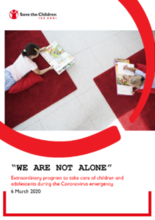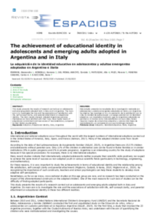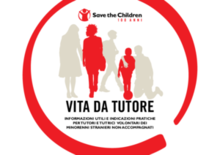Displaying 31 - 40 of 95
Save the Children Italy has launched an extraordinary intervention program for children and adolescents involved in their projects. The program aims to be a valid support for vulnerable minors and their families.
This study presents the results of research carried out on adolescents and emerging adults adopted both in Italy and in Argentina. The main aim is to investigate the role and the associations of satisfaction with life, self-concept clarity, and parental attachment on educational identity.
Identifying different domains and dimensions of children’s well-being and touching upon its multifaceted nature, this study presents an alternative framework, showing how the quality of the reception path for unaccompanied minors is fundamental to having successful results throughout the entire integration process.
This article describes the development of an information system, built in order to monitor the data gathered in the context of a pilot project for early child protection interventions with unaccompanied minors.
This book brings together knowledge of how modern countries in Europe and the United States deal with the issue of errors and mistakes in child protection in a cross-national perspective.
The present study aimed to investigate both familial and mother/father-related risk and protective factors that influenced CPS (Child Protection Services) workers’ decision about the child placement through the “judgment analysis” approach.
Join this webinar to walk through the PROMISE Child Participation Tool and to discuss approaches and considerations for soliciting children’s views on their Barnahus experience.
This manual (written in Italian) seeks to ensure better protection and respect for the rights of migrant children and strengthen the guardianship system by providing key information and guidance for guardians and tutors of unaccompanied foreign minors.
The UN Special Rapporteur on the sale and sexual exploitation of children, including child prostitution, child pornography and other child sexual abuse material, in partnership with the UNICEF Office of Research-Innocenti, will hold a two-day expert meeting in Florence to reflect on the current state of play of this problem, its root causes and new manifestations, as well as the relevance and the impact of interventions to eliminate the sale and sexual exploitation of children.
The purpose of this webinar is to shed light on the specific experiences and issues of unaccompanied and separate girls in the European Response.



